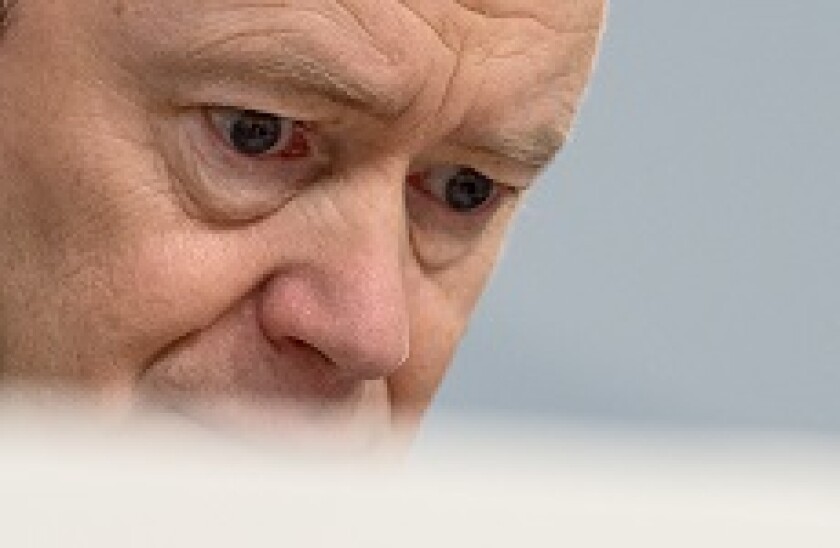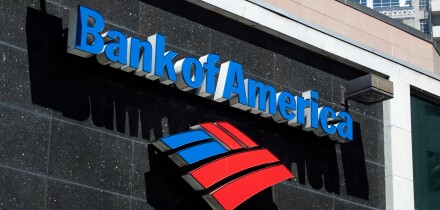The financial markets are awash with sensationalist clamour about Deutsche Bank and whether it is a ‘canary in the coal mine’ for the European banking sector.
Deutsche Bank’s “€50tr of derivatives exposure” is cited by some as evidence of a market out of control, its holding of level three (illiquid assets) posited as a cause for panic in pricing that exposure.
Meanwhile, the withdrawal of money from Deutsche by some funds becomes, in some minds, a run on the bank and the fall of its shares appears as a death spiral. “How can this have happened again?!” comes the cry.
But none of these observations stand up to considered analysis — at least not to a level that suggests echoes of Lehman Brothers.
Deutsche’s derivatives holdings were €42tr notional at the end of 2015, a scary-sounding number but largely in offsetting trades, and even then, substantially down from €52tr a year earlier. This is not evidence of a financial sector running riot but of an institution that has been scaling back. When netting of those positions is taken into account you end up with an exposure level of more like $18bn, as JP Morgan research has noted.
While still a high number, this is a big bank with some €223bn in liquidity reserves, as Deutsche reported in the second quarter.
That’s on top of the 72% of Deutsche’s funding that comes from equity, deposits and long term debt, with only around 7% from prime brokerage balances. Deutsche has a 124% liquidity coverage ratio and ECB funding it could access if required.
Deutsche’s ratio of level three illiquid assets to capital is high, but it’s not even the highest in the market: Barclays and Credit Suisse vie for that award.
And when it comes to the ‘fleeing investors’, it is important to note that no real funding for Deutsche has yet been pulled, only excess balances from a few hedge funds last week. That might be a great way to grab headlines, and excellent news if you’d already shorted the bank, but it is by no means a meaningful, full scale exodus.
The boring reality is that Deutsche might have to issue some equity soon, if the Department of Justice fine ends up closer to the initial $14bn bid than the $5.4bn figure circulating on Friday afternoon. If there’s a couple of months delay, Deutsche’s sale of its stake in China’s Hua Xia Bank should be completed by the end of the year, which would help offset a larger fine.
Let’s be clear, too, about the context: this is not 2008. Even if Deutsche Bank were in trouble it would not be Lehman Brothers all over again.
Much of the systemic risk of a Deutsche fail would be shouldered by the clearing houses. That is, after all, the whole point of the regulatory exercise on derivatives post-Lehman.
In the very worst case scenario, Deutsche would be one troubled bank being aided by the German taxpayer. But it would not be a bank failing while every peer around it also stared into the abyss.
Lehman failed because its problems were too difficult to deal with amid all the other systemic risk, which was brought about by the bursting of a rampant asset backed securities bubble. Lehman did provide a valuable lesson in how systemic risk is transmitted when a bank goes down in such circumstances, but today banks are in a much stronger situation.
So we are, or should be, a long way from those kind of discussions. Part of the reason the systemic angle is being ramped up is because of comments this week from Credit Suisse chief executive Tidjane Thiam that banks are “ un-investable ”.
These were far from helpful for European bank stocks, but this talk backs his view that banking regulations have been overdone and become too cumbersome — a far cry from the complaints of underregulation that precipitated from the subprime crisis and Lehman’s demise. CS has had it harder than many from regulation, one has to remember.
One theme does remain consistent, and that’s the voracious appetite of markets for drama.
One could also point to Deutsche’s travails as a demonstration that adding capital to a bank doesn’t necessarily save from speculative attack. Deutsche’s capital base is stronger than some of the strongest institutions in 2008, but because it still lags peers, it’s still a target. It is not the absolute level of capital, but relative, that often matters.
Whatever happens to Deutsche Bank in the coming months, it is sure to be used as a talking point in the furious regulatory debate — either to illustrate the need for further intervention in markets to make banks sturdier, or to show that capricious regulatory enforcement action can destabilise banks or to mount a pushback by its peers. Either way, let’s quit the scaremongering already.







